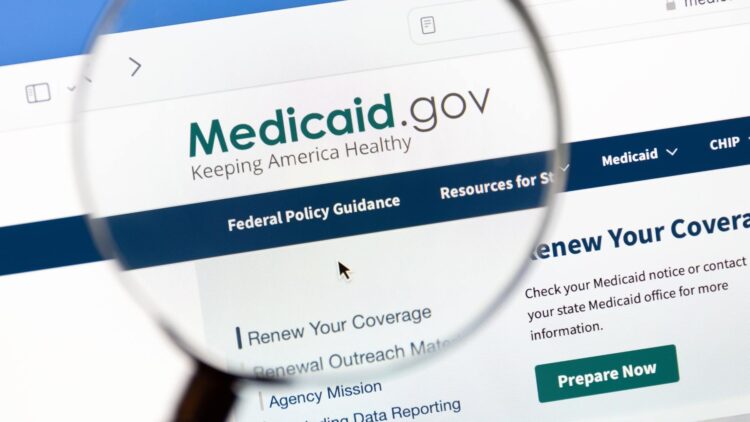With the new president’s focus on saving money in the federal budget one way or another, most social programs are finding themselves on the chopping block, and Medicaid is one of the main ones. With the excuse of securing the program and preventing fraud, the House of Representatives has passed a new piece of legislation that will add new requirements for Medicaid beneficiaries to receive benefits, which will eliminate millions of deserving Americans from the program and leave them without medical coverage. In fact, just in California, 1.2 and 1.4 million residents of the state could be losing their access to healthcare, according to the research group Urban Institute.
To know why this is so important, we should know what Medicaid does, because most Americans are more familiar with other social programs such as Medicare. As a general definition, “Medicaid is a joint federal and state program that helps cover medical costs for certain low-income people, families and children, pregnant women, the elderly, and people with disabilities. Medicaid also helps cover medical costs for other adults. Medicaid offers benefits not normally covered by Medicare, like nursing home care and personal care services. The rules around who’s eligible for Medicaid are different in each state.”
Given that the service covers some of the poorest and most at risk members of society, with fairly stringent rules already especially regarding income and resources, placing even more restrictions on the program seems cruel.
The new requirements to be able to qualify for Medicaid
Under the new legislation, adults younger than 65 who do not have children or disabilities would need to comply with stricter work-related conditions. They would have to verify that they completed a minimum of 80 hours of employment, volunteering, or educational activities during the prior month.
According to The New York Times, states would also have the authority to increase these demands, since it is a joint program and states have certain power to decide some eligibility, potentially requiring individuals to maintain employment for up to 12 months before becoming eligible for Medicaid assistance. While usually states having this power would be a good thing, in this case it might backfire in Republican states, which some of the highest users of the program and would have even more restrictions put in.
The bill seems to have ample support from Republicans in the House, mainly House Speaker Mike Johnson, who has even praised the requirements for adding a “moral component” in the new “big, beautiful bill” proposed by President Trump.
As Johnson said when talking about the clause “If you are able to work and you refuse to do so, you are defrauding the system. You’re cheating the system. And no one in the country believes that that’s right. So there’s a moral component to what we’re doing. And when you make young men work, it’s good for them, it’s good for their dignity, it’s good for their self-worth, and it’s good for the community that they live in.”
The problem lies in the fact that most people that are using Medicaid cannot actually work, be it because of age, condition or other issues that may not be a disability. Most of them actually do have jobs that are insufficient to cover any medical expenses whatsoever. Many see it as just another attempt at cutting the budget at the expense of the poor in order for another tax cut for the rich courtesy of Trump, for which he needs more room in the federal budget, however that is achieved the fastest.
Katherine Hempstead, a senior policy officer at the Robert Wood Johnson Foundation shares this point of view, and states “You might say you’re combating waste, fraud and abuse. [But] the way you’re going to save money is by people inadvertently or accidentally losing their coverage. The program saves money through mistakes. And that’s not a good way to run social insurance or to run policy.”

